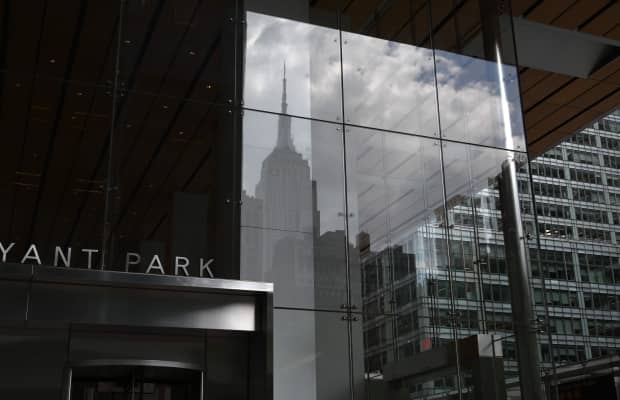Bank of America sells $2 billion of bonds to help fight inequality in Black and Hispanic communities

Empire State Building is reflected in the Bank of America Tower in New York City.
Getty Images
Bank of America Corp. raised $2 billion in the debt markets on Tuesday, with the funding slated to help combat income and social inequality in America’s Black and Hispanic communities.
The novel, inequity-focused debt deal falls under the umbrella of “sustainability” bond issuance, a corner of Wall Street finance that’s gained traction in recent years among U.S. investors.
But BofA’s
BAC,
5-year financing also represents a new twist on social debt, in that it specifically aims to fight longstanding inequities in America’s minority communities, which the coronavirus pandemic has exacerbated.
To that end, proceeds from what it’s calling the Equality Progress Sustainability Bond will fund a variety of projects, including affordable housing in Black and Hispanic communities, as well as entrepreneurship and venture capitalism that aims to boost minority-owned businesses and neighborhoods, according to deal documents.
Low-carbon activities also can be funded, include renewable energy financing and investments, such as pushing cleaner forms of transportation and wind and solar projects.
Socially responsible and green finance have commanded increasing attention in recent months, as America has been confronted with the worst public-health crisis in a century, social unrest tied to police brutality and devastating West Coast wildfires that climate change has intensified.
See: Bank of America sold a first-of-a-kind Covid-19 bond
John Streur, president and chief executive officer at Calvert Research and Management, said that despite growing rancor in Washington as the November election approaches, the “burden of responsibility to address racism, inequality, climate change and other critical issues is shifting, perhaps inexorably, from the federal government to corporations,” in written commentary Tuesday.
Other investors seem to think so too. BofA’s social bonds cleared at a spread of 72 basis points over Treasurys
TMUBMUSD10Y,
down from initial price talk in the area of 90 basis points above the risk-free benchmark. The yield was just under 1%.
Spreads are the level of compensation bond investors earn above a risk-free benchmark, with lower spreads often pointing to high demand or the lower perceived risk of a particular investment.
The latest breed of social bonds comes as a trove of research during the pandemic has shown that Black and Hispanic workers disproportionately shouldered the toll of the threat, both from an economic and heath standpoint.
The virus already has claimed nearly 200,000 lives in the U.S., and escalating cases in Europe forced the U.K. on Tuesday to adopt a fresh round of restrictions, including pub and restaurant curfews that aim to stem its spread.
Chicago Federal Reserve President Charles Evans on Tuesday said the U.S. economy risks sinking in a downward spiral without additional fiscal stimulus from Congress during the pandemic, echoing repeated warnings from Fed Chair Jerome Powell.
But for investors dedicated to environmental, social and corporate governance (ESG) issues, the “offering is a good opportunity for exposure in a name that has taken a leading role in the developing market for ESG bonds,” wrote a team led by Jesse Rosenthal, head of U.S. financials at CreditSights.
It was BofA’s eighth ESG-themed debt issuance to date. The fresh bonds received A2 ratings from Moody’s Investors Service, A- by S&P Global and A+ from Fitch Ratings.
U.S. stocks closed higher Tuesday, snapping a four-session losing streak, after Powell and Treasury Secretary Steven Mnuchin repeated their calls for more fiscal support from Congress. The Dow Jones Industrial Average
DJIA,
ended up 0.5%, finishing at 27,288.18.
The SPDR Finacial Select Sector ETF
XLF,
ended 0.8% lower, amid ongoing scrutiny of the world’s biggest banks, after Buzz Feed and others reported over the weekend that major lenders have benefited from business with clients flagged for potential criminal or illicit activities.



